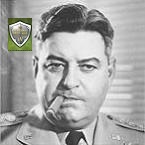Curtis Lemay
Posts: 12969
Joined: 9/17/2004
From: Houston, TX
Status: offline

|
quote:
ORIGINAL: warspite1
quote:
ORIGINAL: Curtis Lemay
Even the Conquerer's children were a blend. But for sure, Henry II was the son of Geoffrey of Anjou, and Henry's wife was from Aquitaine. So Richard I was, at best, 1/4 Norman - the rest mostly French. John's wife was from Angouleme & his son's wife was from Provence. Then Edward I & Edward II had French wives. You have to go to Edward III to find a non-French wife. Then Henry V & Henry VI were back to French again. The Plantagenets were pretty much French.
warspite1
But not French in the sense we know today.
French in the medieval sense. Different from today in a political sense, but not that much in a nationality sense.
quote:
Could you argue that the 100-years war was in fact a French civil war?
I'm not sure about it at that point. Certainly not a civil war – that’s not a medieval concept. But not a modern nationalistic war either. I think the 100-years war probably can only be understood within the context of feudalism. In that sense it was a feudal contest between the Plantagenets and the Capetians/Bourbons. If so, then the English longbowmen at Crecy and Agincourt were upholding a fealty obligation, not advancing some English national agenda. But it does depend on just how Anglicized the Plantagenets had become by then.
Now, if you go back to Henry II's time, Phillip II regarded - and even addressed him - as his vassal. And the conflict between Henry and Phillip was entirely feudal and had nothing to do with nationalism. At that time it was clear that a French Duke was lording it over the English - sort of like England was just a large fiefdom of Henry's. So the French would have had no objections to that.
But, by the time of the 100-years war, the Plantagenets may have been Anglicized enough that it started to look like an English King was lording it over a big chunk of France - reversing the situation. That might even have been the root cause of the war. Again, I just don't know when or even if such a transition took place. I expect there were some inklings of nationalism seeping into the contest via Joan of Arc, but not in any modern sense.
|
 Printable Version
Printable Version









 New Messages
New Messages No New Messages
No New Messages Hot Topic w/ New Messages
Hot Topic w/ New Messages Hot Topic w/o New Messages
Hot Topic w/o New Messages Locked w/ New Messages
Locked w/ New Messages Locked w/o New Messages
Locked w/o New Messages Post New Thread
Post New Thread